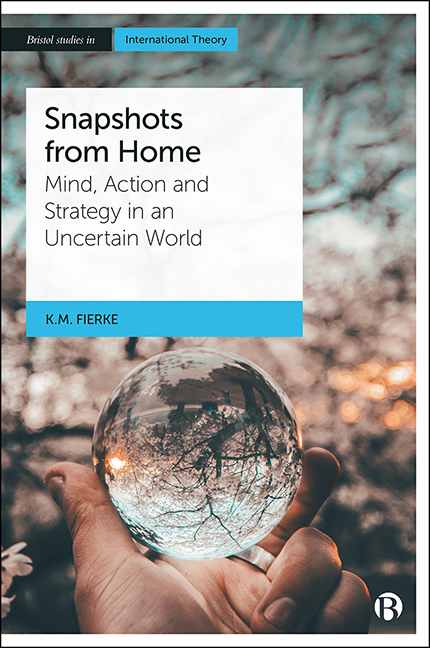Repositioning the Apparatus
Published online by Cambridge University Press: 15 September 2022
Summary
Truth is one; people call it by different names.
Rig Veda, Samhita 1.164.46In 2020 uncertainty became the new normal as the world was gripped by pandemic, financial instability, extreme weather ‘events’ and political polarization, among others. The unpredictability of rapid changes with global impact highlighted the difficulty of decision-making and action in conditions of radical uncertainty. What happens to agency in conditions that are so unpredictable, where conventional wisdom can within a matter of weeks, or even days, be turned on its head in response to a dramatically changing context? This book approaches the problem through an exploration of a very old parallel between quantum physics and Daoism, Buddhism and Hinduism. Over the past one hundred years physicists have drawn on this parallel for a number of different reasons. In revisiting the parallel, I seek to explore what it might tell us about mind, action and strategy in a radically uncertain world. The question is timely in light of the dramatic changes brought about by global upheavals, from climate change to the COVID-19 pandemic.
Change has been a consistent feature of global life, even if this has not always been recognized by those who study it. As Nassim Taleb (2010) notes, people often act from an assumption of certainty, yet history is driven by uncertainty. The upheavals of 2020 were accompanied by an unusual degree of uncertainty. But the pandemic is just the most recent of a series of global changes. As Katzenstein and Seybert (2018: xi) state, the world has been persistently ‘blindsided by the unexpected.’ The end of the Cold War or the attacks on the Twin Towers on 11 September 2001, among others, ushered in significant global changes. Change is arguably the rule rather than the exception.
Earlier debates in international relations revolved around a question of whether change is possible at the international level. The contours of the current conversation look much different, although cut from this earlier cloth. This project is situated at the intersection of two debates that transcend disciplinary boundaries and would seem on the surface to have little to do with one another: the relevance of quantum theory for the social sciences and the importance of moving toward a global IR.
- Type
- Chapter
- Information
- Snapshots from HomeMind, Action and Strategy in an Uncertain World, pp. 3 - 26Publisher: Bristol University PressPrint publication year: 2022



